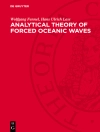Designing a wind turbine is an interdisciplinary process that requires an understanding of challenges for all parties involved. The authors deliver an effective and economic way to organize such a design by respecting all the challenges involved. The book provides such insight by utilizing specific examples of existing modern designs. Detailed descriptions and explanations are given for those components of the wind turbine that are normally developed by the so-called original equipment manufacturers (OEM) of a particular type. The OEM needs to have full knowledge of the complete system that consists of all parts being rotor blades, nacelle, drive train, tower, and foundation including the dynamic properties and the response to the controller action. This full knowledge is called system competence. For a wind turbine the drive train is the most important system. It consists of many components like shafts, bearings, gearbox, and generator for a wind turbine with a gear box; in systems without a gearbox a large generator has to be integrated into the drive train.
Tabela de Conteúdo
Preface.- Acknowledgments.- Chapter 1 – Wind Energy Basics.- Chapter 2 – Modern wind turbines.- Chapter 3 – Development process and requirements.- Chapter 4 – Drivetrain.- Chapter 5 – Structural components.- Chapter 6 – Bearings.- Chapter 7 – Gearbox.- Chapter 8 – Bolt connections.- Chapter 9 – Yaw and Pitch System.- Chapter 10 – Auxiliary Systems and Secondary Steel- Bibliography.- Author’s Biography.
Sobre o autor
Dr. Uwe Ritschel studied physics and received his Ph.D. in 1989. After several years in fundamental research in 2000, he joined the engineering department of Nordex, a wind turbine manufacturer. In 2002 he established the Windrad Engineering Gmb H and worked as managing director. The main business is the development of new wind turbines for international customers from the wind industry. Since 2014 he works as the Chair of Wind Energy Technology at the University of Rostock. In 2019 he co-founded the independent research institute IWEN working more generally on renewable energies and energy transition.
Dr. Michael Beyer received his Ph.D. in physics in 1985. He held several research and teaching positions in different countries including Germany, U.S.A., Switzerland, and several visiting and research grants on basic research. He is affiliated to the University of Rostock since 1994. In 2008 he entered the wind business and from 2014 until 2021 he was managing director of Windrad Engineering Gmb H, an independent engineering office and design house for wind turbines. He shares his experience through supervising, consulting, and is presently teaching mechanical aspects of wind energy at the University of Kassel.












